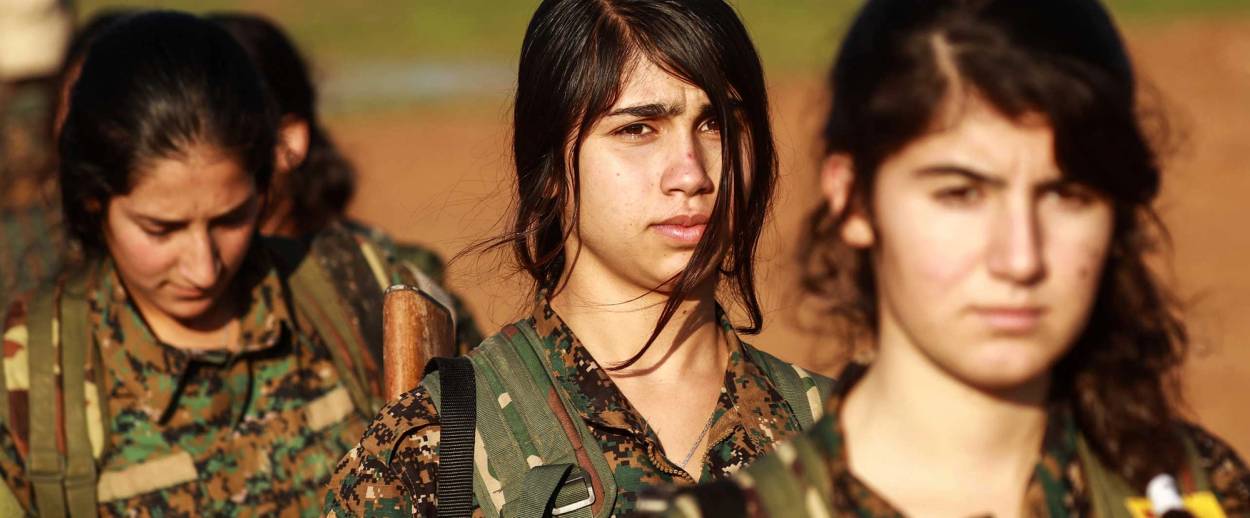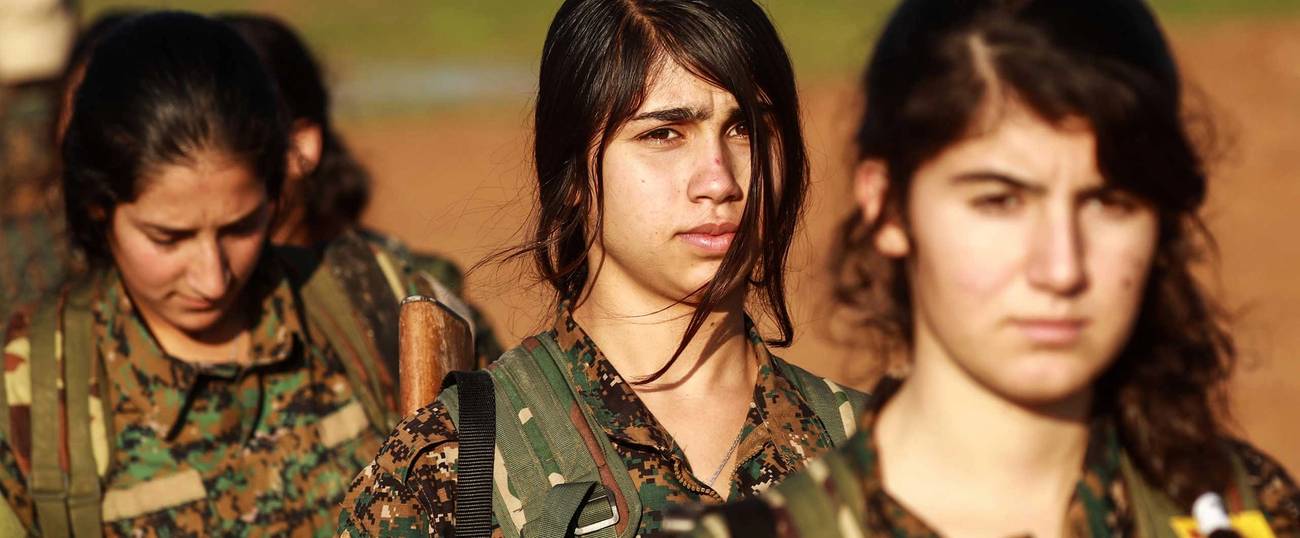In Praise of Kurdish Women
As America withdraws from Northern Syria, finding hope and inspiration in the courage of female fighters




There aren’t many issues these days that have as clear bipartisan support as the condemnation of the US’s sudden withdrawal from Northern Syria.
While the president and some of his supporters justify the policy and argue that the PKK, the Kurdish organization fighting the Turks for independence, is a terror group, most in Washington—including Nikki Hailey, Senator Lindsey Graham, and Mitch McConnell—disagree, calling America’s pullout in Syria a disaster and a betrayal.
But as we continue to watch the region with growing apprehension, specific attention needs to be paid to the unbelievable heroism of the Kurdish women and the gains they have made, which are about to be completely wiped out.
According to sharia law, should a Muslim fighter die on the battlefield, he will become a Shaheed, a martyr, who will go to heaven and be welcomed by his own private harem of 72 virgins. This is one of the beliefs that causes radical Muslims to die gladly for their cause. But there is one big cavate to this plan. Also according to sharia law, should a Muslim fighter die at the hands of a woman, he will go to hell. No heaven and no virgins. The Kurds know this, and use it to their advantage.
For many years, Kurdish women have been on the frontlines, both on and off the battlefield. In 2014, Israeli reporter Itay Anghel, from the renowned investigative reporting program Uvda, planted himself among these warriors. The images are mind bending.
The fighting units are mixed gender in a way the West can only dream of. A group has just finished their training, and they are facing their four commanders, one man and three women. As the ceremony ends, they all chant: “Life, freedom, women.” Media, a seasoned and powerful commander of the all-female fighting force, takes time to talk to Anghel.
“Are you afraid of ISIS?” Anghel asks.
“No, on the contrary, ISIS is afraid of us,” Media laughs. “We are their nightmare. We have developed a technique against their advantage in numbers and in weaponry. They have no answer against our female fighters, but they won’t show you that in their PR reels.”
When these fierce women approach ISIS, they bring training and weapons, but if they want to make themselves known to the enemy, they also chant the ululations, a high-pitched sound used in community celebrations. When the ISIS fighters hear the Kurdish women approach, they run away. They are afraid to die at the hands of a Kurdish woman.
The Kurdish nation, 35,000,000 strong, is the largest nation in the world without a state. Kurds are spread mostly between Iran, Iraq, Turkey, and Syria, and have been fighting for independence for generations. They have suffered oppressions and persecutions from all of the above countries, from dictators past and present. Their most powerful current leader is a man by the name Abdullah Öcalan, who founded the militant Kurdistan Workers’ Party (PKK) and was arrested by Turkish intelligence in 1999. He’s spent the last decade in prison, where he has expressed his abandonment of the idea of armed conflict in favor of a political and peaceful solution to the bloody conflict.
The most extreme experiment in self-governance was taking place in the northern region of Syria, in a Kurdish controlled area called Rojava. About 4 million people have created a decentralized economy, known as a Democratic Confederacy, based on radical democracy, social ecology, and feminism. To sustain the latter, each local committee has two chairpersons, a man and woman, and each committee or community governing group must consist of at least 40 percent women. In the event of local disputes, popular assemblies have been created with full ethnic and gender balance.
The Kurdish women are not a minimized version of a western-friendly female warrior in the likes of Lara Croft. They are taking an active and equal part in building a new global order, with gender equality, radical democracy and self-governance. And in the Middle East, of all places.
“People are unaware of just how these developments in Rojava are historically unprecedented”, anthropologist David Graeber told the Israeli newspaper Haaretz.
It was not too long ago that Protection of women in Islamist Radical countries was a major public policy focus of the US government. Many US tax-payers dollars, for example, were spent to build the Rabia Balkhi women’s hospital in Kabul.
The threat of ISIS is the threat of ideas, which can travel like a plague across countries and demographics. To say we have completely defeated it is an incredibly dangerous arrogance: Ideas don’t die with bullets or tanks. The best way to change minds is to change hearts, and I can’t think of a better way to counteract a backwards, close-minded ideology than to build a better, more progressive world.
The Kurds are everything that we asked the Muslim world to be, and more.
In the words of a Kurdish woman fighter, a girl, 20 years of age:
“I joined Women’s Protection Unit, YPJ force, to protect my people and mostly to protect the women. Women were considered holy in the past, and with time, men in general and especially in this region took away our rights. They have turned us into something which can only cook raise children and serve men. What is happening now is that we are taking back our rights. Me and my girlfriends joining the YPG we are proving that a woman can do anything a man can, so our fight is not just for the Kurdish women, it is for women world-wide.”
Those are the people we have deserted. These are the women we have deserted.
The Kurdish women are a force of nature we must protect. They are what we have spent over 20 years of blood and treasure to achieve. To throw it all away now makes mockery of Americans’ sacrifices. It is an unfathomable, inexplicable, horrific mistake.
Noa Tishby is an Israeli American actress, producer, writer and activist. You can follow her on Instagram, Twitter, and Facebook at @noatishby.